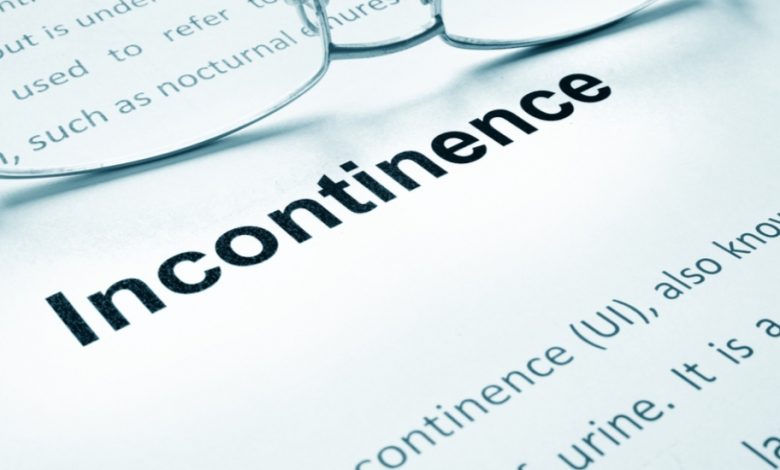Urinary Incontinence: Causes, Types, & Prevention – Dr. Shweta Shah

Do you feel you can’t leave your home without fearing that you might have to urinate too frequently? Or do you feel like you have no control over your bladder? Then you might have urinary incontinence.
In this article, Dr. Shweta Shah, gynecologist in Malad, Mumbai, discusses urinary Incontinence, its types, and treatments.
What is Urinary Incontinence?
Urinary Incontinence is a condition where you lose control of your bladder. It’s a common problem. Urinary Incontinence could be moderate or severe. In moderate conditions, you may occasionally leak urine. In a severe condition, you must urinate so badly that you can’t even hold your urine in until you reach the toilet.
Although it occurs mainly when people get older, it can affect people of any age. Dr. Shweta Shah is a renowned gynecologist in Malad, Mumbai, who treats the condition of urinary Incontinence.
Symptoms
The most prominent symptom of incontinence is urine leakage. This could be constant or occasional. This could be because of a plethora of reasons:
Exercising
Laughing
Coughing
Sneezing
Having a strong urge to urinate but not making it to the toilet on time
Read Also: Root Canal: Symptoms, Procedure & Prevention – Dr. Suhrab Singh
Types
Stress incontinence: When you exert pressure on your bladder by coughing, sneezing, laughing, exercising, or lifting anything heavy, urine spills.
Urge incontinence: A minor ailment can cause urge incontinence like infection or a more severe condition like a neurological disorder or diabetes. You feel an unexpected, strong urge to urinate, followed by an involuntary loss of urine. You may need to urinate frequently, including at night.
Overflow incontinence: You have frequent or continual pee dribbling due to a bladder that does not empty.
Functional Incontinence: You cannot use the restroom due to a physical or mental handicap.
Mixed Incontinence: You have more than one form of urinary incontinence, which is usually a combination of stress and urge Incontinence.
Causes
The most common cause of stress incontinence is a weakening or injury to the muscles that prevent urination, says Dr. Shah, gynecologist in Malad, Mumbai. Urge incontinence is typically caused by the overactivity of the detrusor muscles that control the bladder.
Overflow incontinence is frequently caused by an obstruction or blockage in your bladder, which stops it from emptying. Other things causing urinary Incontinence are:
Aging
Pregnancy
Childbirth
Family history
Weak bladder muscles
Damaged pelvic floor muscle
Enlarged prostate
Urinary Tract Infection
Kidney stones
Kidney infection
Diabetes
Menopause
Caffeinated and alcoholic beverages
Constipation
Stroke
Some conditions causing urinary incontinence can be treated easily and cause temporary urinary issues. Some are persistent and serious.
Diagnosis
According to Dr. Shah, a gynecologist in Malad, Mumbai, this is how the doctors will diagnose your urinary incontinence: First, your doctor will ask questions about bladder control issues.
They may ask you some questions like:
How often do you urinate?
Do you leak pee between toilet trips? How frequently does this occur, and how much urine do you leak every time?
How much is your caffeine or alcohol intake?
Does the Incontinence occur when you cough or laugh?
How long have you been experiencing this incontinence?
Your answers to these questions will help your doctor determine your type of incontinence. They will also ask about your past pregnancies if you had any, and the details related to those deliveries.
Physical Exam: Your doctor might do a physical exam for the diagnosis. They will look for any physical reason that could be causing the Incontinence for you. There are some tests that your doctor may tell you to get:
This can include a pelvic exam for women and checking the size of a man’s prostate.
Urine samples: The doctor will check your urine for testing for blood or infections. This test is called a urinalysis.
Ultrasound: Ultrasound is a test in which sound waves are used to create an image of your internal organs.
This can help the provider determine the contents of your bladder and its ability to empty itself.
Stress test: In this test, your doctor will ask you to cough to check if the urine leaks. If you notice any leakage while doing physical activities, your doctor can ask you to repeat those activities to check if you have any leakage issues.
Urodynamic testing: Several tests are performed to determine how much your bladder can contain and how well the muscle keeping your urethra closed is performing.
Pad test: Your physician may offer a pad to wear that will capture any pee leaks. Your doctor will examine this pad after the test to see how much pee you lost.
Your doctor may also tell you to keep track of any leakage. It can help them identify a pattern.
Treatment
According to Dr. Shah, the treatment of Incontinence depends on the cause of your Incontinence. The treatment can involve:
Bladder training: Your doctor may tell you to do specific exercises. These may include bladder control or pelvic floor exercises. Pelvic Floor Exercises: Pelvic floor exercises strengthen the muscles around your bladder, bottom, and vagina or penis.
Medications: Medications can help in some cases. Medications depend on what type of Incontinence you have.
Managing the conditions: If another infection like UTIs causes your Incontinence, your doctor will treat that condition to treat your Incontinence.
Risks
Obesity: Being obese can put extra pressure on your bladder and the surrounding muscles. This can weaken the muscles, causing leakage generally when a person coughs or sneezes.
Smoking: Smoking can cause long-term coughs that can result in Incontinence.
Old age: The muscles in the bladder and urethra may weaken with age.
Gender: Women experience more stress incontinence than men, especially after giving birth.
Family History: If you have a history of Incontinence in your family, you may also have it.
Prevention
You can’t prevent Urinary incontinence, but you should take the following measures to reduce the risk of getting it.
Maintaining a healthy weight
Exercising
Eating a healthy and balanced diet
Reducing alcohol and caffeine consumption
If you smoke, try to avoid smoking
Seeking immediate treatment for bladder or urinary tract infections.
Conclusion:
Urinary Incontinence might be a temporary problem caused by an infection, or it can be a more permanent problem caused by another health condition, such as an enlarged prostate or pelvic floor weakness.
A doctor may be able to assist your urine incontinence by addressing the underlying health condition. For urinary incontinence treatment, you can visit Dr. Shweta Shah gynecologist in Malad, Mumbai.




